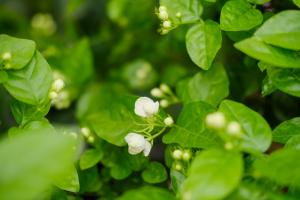What Can You Eat on a Plant-Based Diet?
As more people become health conscious and environmentally aware, plant-based diets are becoming increasingly popular. A plant-based diet involves consuming primarily plant-based foods, including vegetables, fruits, whole grains, legumes, nuts, and seeds, while limiting or avoiding animal products. But what can you eat on a plant-based diet? Let's explore some options.
Plant-Based Proteins
Protein is an essential nutrient, and many people think that they can only get it from animal products. However, many plant-based foods are rich in protein. Some excellent plant-based protein sources include:
- Legumes: lentils, black beans, chickpeas, and kidney beans
- Nuts and seeds: almonds, cashews, chia seeds, and hemp seeds
- Whole grains: quinoa, brown rice, barley, and whole wheat bread
- Soy products: tofu, tempeh, and edamame
Vegetables and Fruits
Vegetables and fruits are the foundation of a healthy plant-based diet. They provide essential vitamins, minerals, and fiber, and are full of flavor and color. Some of the best plant-based vegetables and fruits include:
- Leafy greens: spinach, kale, collard greens, and Swiss chard
- Cruciferous vegetables: broccoli, cauliflower, cabbage, and Brussels sprouts
- Berries: strawberries, blueberries, raspberries, and blackberries
- Citrus fruits: oranges, lemons, limes, and grapefruits
Healthy Fats
While many people think that a low-fat diet is the best way to lose weight, healthy fats are essential for good health. Some of the best plant-based sources of healthy fats include:
- Avocado: rich in monounsaturated fats, fiber, and potassium
- Nuts and seeds: almonds, walnuts, pumpkin seeds, and flaxseeds
- Olive oil: a good source of heart-healthy monounsaturated fats
- Coconut oil: contains medium-chain triglycerides, which can boost metabolism and promote weight loss.
Whole Grains
Whole grains are an important part of a healthy plant-based diet. They are rich in fiber, vitamins, and minerals, and provide sustained energy throughout the day. Some of the best plant-based whole grains include:
- Brown rice: a good source of fiber, protein, and B vitamins
- Quinoa: a complete protein source, containing all nine essential amino acids
- Oats: a great source of soluble fiber, which can lower cholesterol levels
- Whole wheat bread: contains more fiber and nutrients than processed white bread.
Plant-Based Milk and Dairy Alternatives
If you're used to consuming dairy products, switching to a plant-based diet may seem challenging. However, there are plenty of delicious plant-based milk and dairy alternatives to choose from. Some popular options include:
- Soy milk: a good source of protein, calcium, and vitamin D
- Almond milk: low in calories and high in vitamin E
- Coconut yogurt: rich in healthy fats and probiotics
- Nutritional yeast: a great source of vitamin B12, which is essential for vegans.
In conclusion, a plant-based diet can be a healthy and tasty way to nourish your body and reduce your carbon footprint. By focusing on whole, nutrient-dense plant-based foods and limiting or avoiding animal products, you can enjoy an array of delicious and satisfying meals.

 how many times do yo...
how many times do yo... how many planted tre...
how many planted tre... how many pine trees ...
how many pine trees ... how many pecan trees...
how many pecan trees... how many plants comp...
how many plants comp... how many plants can ...
how many plants can ... how many plants and ...
how many plants and ... how many pepper plan...
how many pepper plan...































